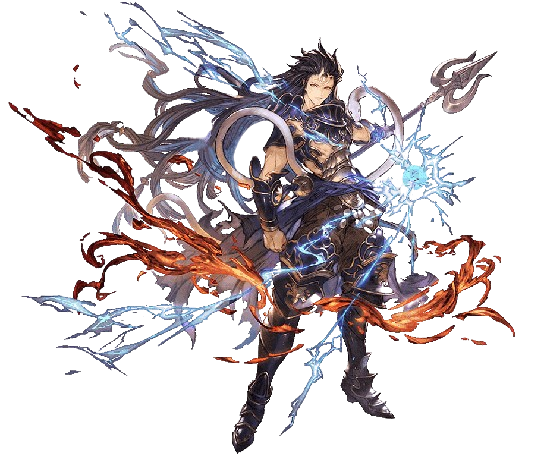Introduction
Fantasy games have evolved from niche entertainment to a global phenomenon that permeates various aspects of pop culture and media. Whether it’s slaying dragons in medieval realms or exploring vast magical landscapes, these games offer players a chance to escape reality and enter worlds filled with imagination, lore, and adventure. The rise of fantasy games has not only shaped the gaming industry but also influenced other forms of media, including movies, television shows, books, and even fashion.
In this article, we will explore how fantasy games have become a cultural staple, their influence on other media, and why they resonate so deeply with modern audiences. Game development companies, including those that specialize in fantasy genres, have played a crucial role in bringing these immersive experiences to life.
Boost Your Fantasy Game Efficiency

The Origins of Fantasy in Gaming
Fantasy as a genre has long existed in literature, dating back to ancient mythology, folklore, and epic tales like The Odyssey and Beowulf. However, the advent of video games in the late 20th century opened a new chapter in the way fantasy stories were told and experienced. Early titles such as Dungeons & Dragons, and later computer-based RPGs like Ultima and The Legend of Zelda, laid the groundwork for an entire generation of fantasy gamers. These early games blended rich narratives with immersive gameplay, establishing the foundations of the fantasy genre in gaming.
The collaboration between visionary storytellers and innovative game development services has only strengthened the genre over time. This blend of storytelling, world-building, and player agency gave rise to a loyal community that would continue to grow with each advancement in technology.
Fantasy Games as Storytelling Mediums
At the heart of many fantasy games is storytelling. Games like The Elder Scrolls, Dragon Age, and The Witcher provide intricate, branching narratives that rival those of novels and films. Players become the heroes of these worlds, making decisions that impact not just the storyline but the world itself. The creative teams behind these games often work with a game development agency to refine these interactive narratives into seamless gaming experiences.
The depth of the lore in fantasy games often leads to supplementary content, such as books, comics, and even animated series. For example, The Witcher series, which began as a series of novels by Andrzej Sapkowski, found new life and greater cultural prominence as a video game franchise before being adapted into a successful Netflix series.

Fantasy Games in Popular Media
The success of fantasy games has rippled into mainstream media in various forms. Television and film adaptations of fantasy video games, such as Warcraft and The Witcher, have brought beloved game characters and stories to wider audiences. These adaptations often attract fans of the games while also introducing new viewers to the fantasy genre. For these adaptations to succeed, fantasy cricket game development companies and similar agencies often collaborate to ensure that the game’s core themes and mechanics translate well into visual media.
Additionally, YouTube channels and streaming platforms like Twitch have helped fantasy games grow even further in popularity. Streamers create entire communities centered around games like Final Fantasy XIV or World of Warcraft, offering viewers a shared experience of exploring virtual worlds together. This extends the reach of fantasy games beyond the players themselves, influencing broader media conversations.
Fantasy-themed podcasts, video essays, and fan art are further evidence of how these games have a unique way of engaging audiences across multiple mediums.
The Appeal of Fantasy Worlds
One of the primary reasons fantasy games have become so integral to pop culture is the genre’s ability to offer an escape from reality. Whether it’s the allure of slaying mythical creatures or the opportunity to wield magic, fantasy allows players to experience things impossible in real life. This sense of escapism provides a safe space for creativity, exploration, and identity-building.
Moreover, the open-world format of many fantasy games allows players to explore vast, beautifully rendered landscapes that feel limitless. In titles like The Elder Scrolls V: Skyrim or Breath of the Wild, players are free to wander across mountains, through forests, and into magical cities without the constraints of linear gameplay. This freedom adds to the immersive nature of fantasy games and fosters a deep emotional connection to these virtual worlds. Fantasy Football App development companies have even extended this appeal into mobile apps, making fantasy experiences accessible to casual players.
Fantasy games often feature rich character customization, enabling players to see themselves in the story. Whether playing as an elf, dwarf, or human, gamers can embody different roles and perspectives, making the experience highly personal.
Jump Into Action: Start Fantasy Game Project

Influence on Other Media
The impact of fantasy games on pop culture extends beyond just adaptations and fandom. These games have had a tangible influence on fashion, art, and music. Iconic designs from games like The Legend of Zelda or Final Fantasy have inspired clothing lines, jewelry, and artwork. The rise of cosplaying at conventions such as Comic-Con has solidified the role of fantasy games in shaping modern-day subcultures.
Fantasy game soundtracks are also widely celebrated. Music from games like The Witcher 3 or Final Fantasy VII has been performed in orchestras worldwide, further illustrating the influence of these games beyond the screen. The soundscapes of these fantasy realms become part of the player’s memory and emotional connection to the game, transcending the medium itself.
Fantasy Baseball App development companies, alongside other developers, are tapping into this cultural crossover, creating mobile games that not only replicate the thrill of fantasy sports but also weave in elements of character building and adventure.

The Future of Fantasy Games
The future of fantasy games is filled with potential, thanks to innovations in technology such as virtual reality (VR) and augmented reality (AR). These technologies offer players an even more immersive experience, allowing them to physically explore fantasy realms. Games like The Elder Scrolls: Skyrim VR or Blade & Sorcery are already pushing the boundaries of player immersion.
Additionally, artificial intelligence (AI) and procedural generation in games are set to create even more dynamic fantasy worlds. Future games might allow for even more complex branching narratives, NPCs that feel alive, and landscapes that change based on player actions. This growing complexity will likely drive increased demand for game development services, as companies strive to deliver cutting-edge experiences.
Fantasy games are also becoming more inclusive, with developers creating characters and storylines that reflect a broader range of identities and experiences. This inclusivity will likely make fantasy games even more culturally significant, appealing to a wider audience than ever before.
Cultural and Social Impact
Fantasy games have also influenced broader cultural and social conversations. For example, they often reflect real-world issues through allegory, touching on themes like good versus evil, racism, and political corruption. These parallels allow players to engage with serious topics in a more digestible way while still enjoying the fantastical elements of the story.
Moreover, the community-building aspect of fantasy games cannot be understated. Multiplayer online games like World of Warcraft or Guild Wars 2 have created vast, interconnected communities where players from different backgrounds come together to accomplish shared goals. To bring such games to life, developers often need to hire game developers experienced in crafting collaborative multiplayer experiences. These experiences foster a sense of camaraderie, teamwork, and shared purpose that can extend beyond the game itself.
Fantasy games have also had an impact on language. Terms like “leveling up,” “quests,” or “grinding” have become common parlance not just in gaming but in everyday conversations, illustrating how deeply intertwined these games have become with our modern culture.

Conclusion
Fantasy games have cemented themselves as a powerful force in pop culture and media. Through their immersive worlds, compelling storytelling, and dynamic influence across multiple platforms, they have reshaped the way we engage with fiction. From their origins in tabletop RPGs to their modern adaptations into TV shows, films, and VR experiences, fantasy games continue to captivate audiences and inspire creativity.
As technology advances and inclusivity grows, the cultural significance of fantasy games will likely continue to rise, leaving an indelible mark on both the gaming industry and the broader landscape of media. Companies offering fantasy cricket game development services or fantasy baseball app development services will play a key role in shaping these future experiences.



